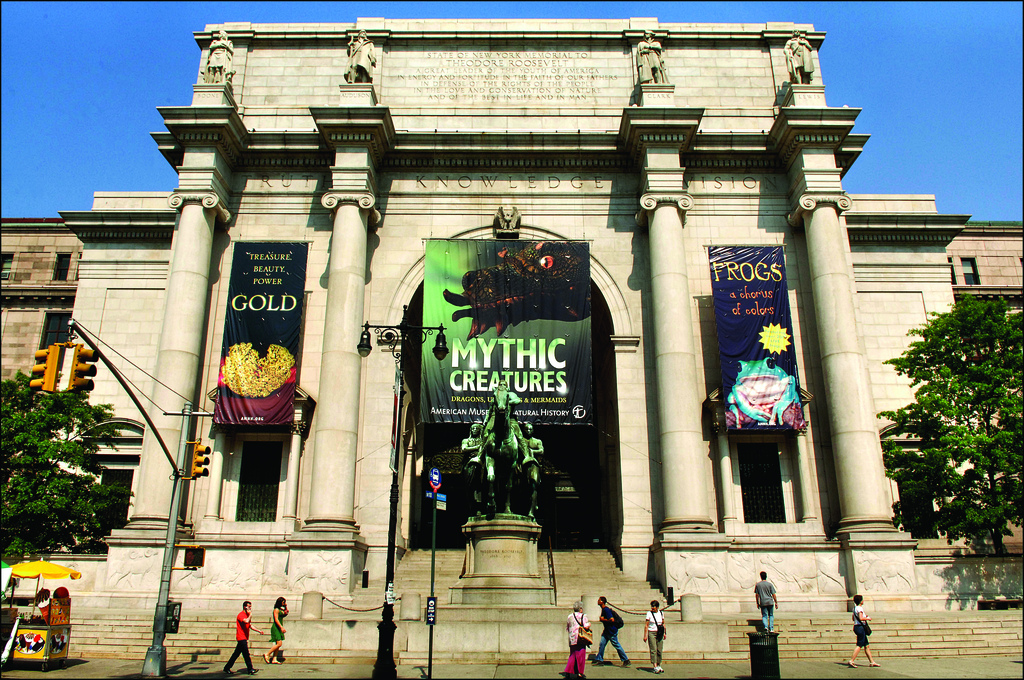Zora Neale Hurston wrote about the oppression of the minority in her essay, "What White Publishers Won't Print". She posed an important question - why do people remain skeptical about "the internal life of minorities"? Why does the majority refuse to believe that the minority has a deeper side?
Hurston used the Museum of Natural History (pictured above) to help answer the question that she posed. She said that:
What is the problem with this, exactly?"[The American Museum of UNNatural History] is an intangible built on folk belief. It is assumed that all non-Anglo-Saxons are uncomplicated stereotypes. ... They are lay figures mounted in the museum where all may take them in at a glance. They are made of bent wires without insides at all."
Hurston says that we cannot move past the minority v. majority issue until the majority begins to see the intelligent life within the minority. Until we see "them" as "like us" then we will continue to separate ourselves and remain ignorant to minority cultures that could potentially enrich our own culture.
Hurston was not the only one to see fault with the Museum of Natural History's "typical" exhibits. The following poem, "Museum of Unnatural History", was written by David T. Bruce.
"Museum of Unnatural History"
Festival of art
Grants to patrons granted
Penalty paid with interest
Refuse to play?
Don’t look the other wayKeep a watchful eye for phonies
Facts are rarely represented faithfully
Homogenized canvas
The broadest stroke is used
Statues erected as visions crumble
Readings are rhetorical
Scripted spontaneityNational museum of relics
Carbon copies, misprints
Words of mass destruction
Mementos engraved with dreams of futures past
Symbols now our laurels
We live in yesterdayWe preach a fierce morality
While we dance around the truth
The art of diplomacy carves a monument of hypocrisy
Watercolor dreams for our youth
Washed away by pious despots
A country cunningly annihilated
Notice the words and phrases that Bruce uses to describe the museum. Take special note of his use of the word "dreams". "Dreams of futures past", he writes. Here, he plainly states that the museum does not represent fact or actual events. Instead, it is a dreamlike representation that should not be taken seriously.
What is the harm in this, then? Why do Hurston and Bruce write such negative things about a museum?
So how do we prevent this from happening? How to we fuse the majority and the minority into "one"? Hurston believed that a change in the majority's thinking is the only answer. The majority must stop thinking in terms of "us" and "them" in order for anything to change.
This change in thinking may take many more decades to achieve. Change always takes great effort and much time. But a necessary change is always worth it.




